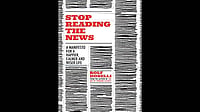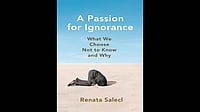Humans inevitably draw from history to shape and reinterpret their identity. Historian E.H. Carr would argue that history is a continuous dialogue between the past and present and a continual interaction between the historian and facts. Stretching the argument further, Namit Arora contends that history should as much advance our understanding of the past as help in understanding our place in a changing world. Bringing together ancient history, chronicled narrative, and present interpretation of six iconic places, Arora triangulates history as an evolving process.
Indians is an evocative and credible attempt at reconstructing history through astute reflection on the evolution and decline of sites which were once the cradles of civilisation. Told through visits to Dholavira, Nagarjunakonda, Nalanda, Khajuraho, Hampi and Varanasi, and peppered with the accounts of travellers like Megasthenes, Xuanzang, Al-Biruni and Marco Polo, this book explores our interconnected ancestry that binds us to our present. It is a book about belonging; about walking in ancient places in search for an authentic identity.
In addition to fulfilling the author’s quest for reconnecting with India after a two-decade long absence, the book serves a dual purpose of replacing the dull, untrue or often motivated historical narrative with a more open, evidence-based and empathetic perspective on shaping the idea of India. That Harappans had the most sophisticated water management system, including the first-ever indoor toilets, over two millennia ago exposes our present-day sanitation inadequacies, and the erotic architecture of Khajuraho mocks at our cultural aversion to harness desire towards spiritual awakening. Much as history should have broadened our intellectual horizon, as a society we are beset with deficits in critical thinking and historical imagination.
Arora marvels at the artistic excellence, technological sophistication and religious moderation of bygone eras, but expresses concern at some cultural misunderstandings by past travellers, for which he suggests fresh translations of their accounts. The suggestion is not without purpose, as “the accounts of travellers (Chinese) are invaluable to inform and enchant us, and for providing us the evidence we need to resist the rewriting of history to suit narrow political ends”. Without staking any serious claim to history writing, Indians provides an exciting churn of ideas, beliefs and values that have the potential to reshape our present.
A journey covering the period from 220 CE to 2600 BC makes for absorbing reading, although at places author’s innocent curiosity gets the better of accepted historical facts. Some of this comes from the difficulty inherent in journeys across historical time zones, and hence passages on pre-Hindu era religious practices, the fall of Buddhism and the mutilation of temples by Mughals fall short of academic rigour. No such claims are staked by Arora, who perceives history through the many layers of suggestions through which it engages the seeker. Else, who would be courageous enough to write that “most temple desecrations had political and not sectarian motives”?
It is with pleasure one reads a book like Indians. With Arora as an inquisitive companion, the archeological sites come alive in their complexity and diversity. Written in evocative, often ecstatic, prose, it fills the growing demand to draw a new narrative about being Indian. Reflection on human societies across time and place, says Arora, can help construct an authentic present.
While deepening our sense of wonder at what was India, visiting historical landmarks and imagining their imminent downfall brings about a fresh perspective. For, not been aligned with any ideological view, Indians should come a handy reading for the present generation which is increasingly distanced from our rich heritage. Only through an appreciation of unbiased history can one bridge the distance between past and present to carve a distinct future for our civilisation. Indians could offer a perfect start!
(Sudhirendar Sharma is an independent writer, researcher and academic)

























